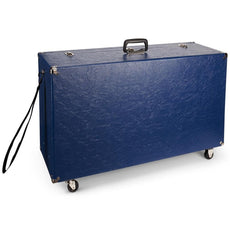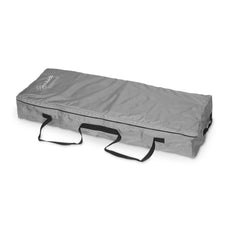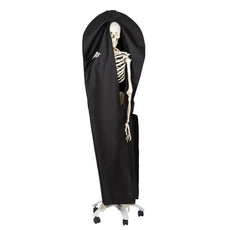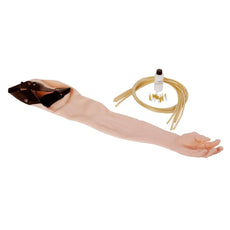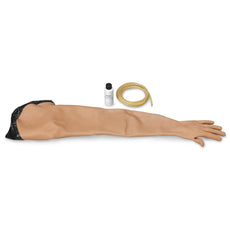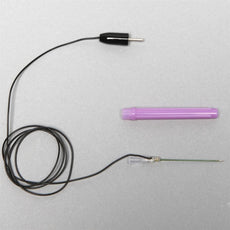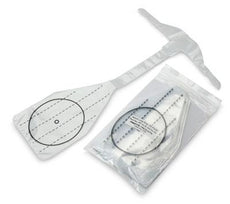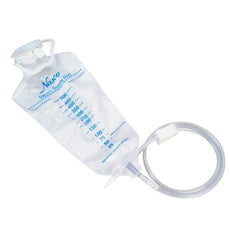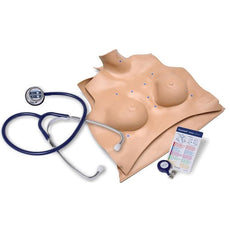Your shopping cart is empty.
Heart and Lung Sounds Auscultation Upgrade Kit for Adult Manikin, Light Skin
Product Features:






7.0 lb
Heart and Lung Sounds Auscultation Upgrade Kit for Adult Manikin, Light Skin
Item # S200.848.L
$1,084.00
Ships in 8-10 weeks
Need an estimate?
Click Add To Quote

Features & Specifications
-
by
A trusted GT partner -
1-Year Warranty
Provided by manufacturer -
Made in USA
Manufactured in the U.S -
Gov't pricing
Available upon request
Frequently Bought Together
Heart and Lung Sounds Auscultation Stethoscope for Adult Patient - Upgrade Kit, Light Skin
The S200.848 is a torso overlay for adult Gaumard® manikins useful for heart and lung sound auscultation training. The provided stethoscope allows participants to work hands-on, identify, and diagnose a variety of cardiac and respiratory illnessesProduct Features:
- Update your Gaumard® manikin at your facility
- Convenient torso overlay with sensor network hidden beneath the skin
- Hear the appropriate heart or lung sound as bell of stethoscope is moved across the front and back of the torso
- Includes our Virtual Stethoscope® with multiple heart and lung sounds
- An external speaker plugs into the Virtual Stethoscope so a classroom can hear what the student hears
- Instruction manual
- Carrying Bag
- Features patented Virtual Instruments® technology
VS100 SOUND DETAILS
| SOUND | COMMENT |
|---|---|
| Venous Hum | This continuous murmur may be found in children aged 3 to 6 years. It occurs as a result of the turbulence in the jugular venous system and it only heard when the child is in the upright position. The rate is about 96 beats per minute. |
| Aortic Stenosis | This systolic murmur is loudest over the ascending aorta. Duration and intensity vary with the severity of stenosis. An ejection click may be heard. |
| Split S2 | Sounds are rather normal. Degree of splitting increases with the inspiration and decreases with the expiration. Wide split suggests prolonged RV ejection or shortened LV ejection; narrow split suggests early closure of pulmonary valve. |
| Pulmonary Stenosis | This systolic murmur is normally loudest over the main pulmonary artery. Duration and intensity vary with the severity of stenosis. |
| Systolic Fixed S2 | Fixed S2 does not change width during respiration. The absence of split S2 usually indicates a condition that prolongs RV ejection time or shortens LV ejection. Conditions include volume/pressure overload and RBBB. |
| 1 Year Heart | Normal heart sounds heard in a 1 y/o child. The rate is 120 bpm. |
| 6 Year Heart | Normal heart sounds heard in a 6 y/o infant. The rate is 84 bpm. |
| Stills Murmur | The vibratory murmur may be found in children between ages 3 to 6 years and sounds like "twanging string", or squeaking/ buzzing at a low frequency. During inspiration, murmurs increase on the right side and decrease in the left. |
| Mitral Valve Regurgitation | This systolic murmur is produced by lesions, more often rheumatic than congenital in origin. Chest ï¬lms may show pulmonary vein congestion, pulmonary edema, or an enlargement of the left atrium/ventricle. |
| Split S1 | S1 relates to closure of mitral and tricuspid valves. Not common in normal children, and may indicate RBBB or other anomalies. Sound can be confused with an ejection click S4. |
| Normal Infant | Expiration sounds are louder, have a higher pitch, and are of longer duration than during inspiration. The silent period or pause following expiration is longer than the one between expiration and inspiration. |
| Normal Child | Expiration sounds are louder, have a higher pitch, and are of longer duration than during inspiration. The silent period or pause following expiration is longer than the one between expiration and inspiration. |
| Stridor Sounds | Patient has marked respiratory distress, and a narrow aperture between the vocal cords that produces a high pitched tone during both inspiration and expiration. During the end of expiration, there is an abrupt drop in pitch. |
| Wheezing Sounds | These musical wheezing sounds are often heard in asthma patients. During inspiration, the wheeze is slightly higher in pitch than during expiration. Wheezing in asthmatics is often present in either one or both phases of respiration. |
VS100 SOUND TABLE

VS100 USER GUIDE
GETTING STARTED
Unscrew the top cover of the stethoscope bell. Remove and discard the plastic insert separating the two batteries prior to first without use.

ON/OFF
Push the button to power the stethoscope on/off. When the stethoscope is on the power light blinks green. When the battery is low the power light blinks red. The stethoscope automatically powers off after 6 minutes of inactivity or after 40 seconds of looking for a sound without success.

SOUND SELECTION
Press and hold the button for 2 seconds to begin selecting the desired sound set as per the “VS100 SOUND TABLE" to the left. Press the button briefly to cycle through the different sound set colors. Press and hold the button for 2 seconds again to hide the selected color.

PLAYING A SOUND
Press the stethoscope firmly against the auscultation areas to listen for sounds. If the stethoscope is pressed against non-auscultation areas the indicator lights stop blinking.

CHANGING THE BATTERY
The VS100 Virtual Stethoscope uses two CR2032 batteries (8 replacement batteries are included). To replace the batteries, unscrew the top cover of the stethoscope bell. Pull the battery removal strip outward to remove the batteries. Insert two new batteries, positive (+) sides facing down, taking care to relocate the battery removal strip in its proper position. Replace the top cover of stethoscope bell.
Made in USA by Gaumard Scientific.
One year limited warranty.
GTSimulators by Global Technologies
Gaumard Scientific Authorized Dealer
One year limited warranty.
GTSimulators by Global Technologies
Gaumard Scientific Authorized Dealer
Shipping Dimensions and Weight:
- Size: 35 x 15 x 10 in
- Weight: 19 lb

by — Item # S200.848.L
Heart and Lung Sounds Auscultation Upgrade Kit for Adult Manikin, Light Skin
$1,084.00
Add to Cart
Add to Quote





















